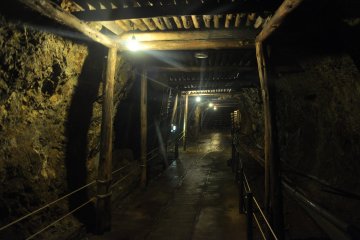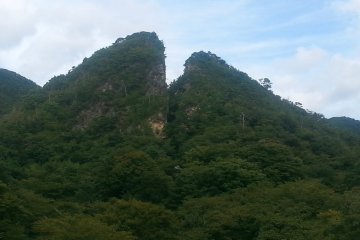
Sado Gold Mine
Kenny King Hin ChoiAt the Sado Gold Mine, you can learn the rich history of the mines, the mine workers and the mine's production until its closure in 1989.

Sado Kinzan is located off the shore of Niigata Prefecture on Sado Island. Once hailed as a major contributor to Tokugawa’s flourishing finances, the mines of Sado provided up to 400 grams of gold a year, along with silver. It was worked from 1601 to 1974 and officially closed in 1989.
Today, the mine is not operational but preserved for its industrial and historical worth. In 2024, it was registered as Japan’s 26th UNESCO World Heritage Site.
Visitors to the Sado mine can now enjoy a museum detailing the history of some of the artifacts made from Sado gold and silver. It also depicts the harsh working conditions for all laborers. Along with the museum, there are also several courses available to walk.
As you walk along the courses inside the mine tunnels, you’ll be treated to bilingual signs that illustrate what life was like for the workers. You’ll also see several animatronic and lifelike figures that further demonstrate the mining life and hardships.
Every year, there is a memorial event for the wartime laborers.
The Sado Island Gold Mines are Japan’s 21st World Cultural Heritage site. The total number of UNESCO World Heritage sites, which include natural heritage sites, is 26.
A ferry leaves from Niigata Port several times a day. Please check the ferry website for times.

At the Sado Gold Mine, you can learn the rich history of the mines, the mine workers and the mine's production until its closure in 1989.

Join us as we follow this historic route that takes in samurai castles, mountain monasteries, and UNESCO sites – all on the newly developed high-speed Hokuriku Shinkansen route.

Day trip to Sado Island in Japan. A step back in time to a remote and beautiful location. Exploring the gold mine of Sado.